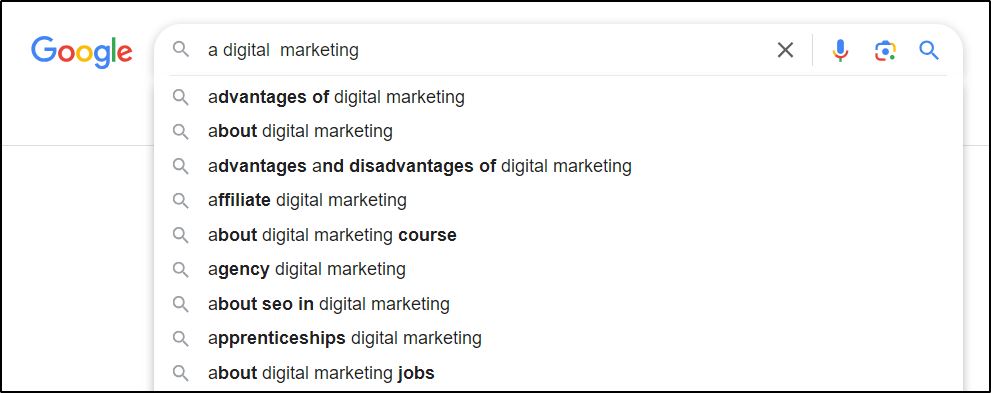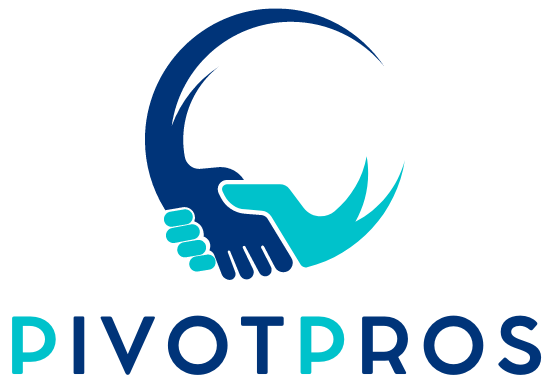2024 will always be remembered as a deadly year for the SEO industry.
AI overviews, Google’s relentless spam updates, and uncertainty surrounding the search giant’s evolving policies left many scrambling.
The massive disruption in search results—combined with a flood of low-quality AI-generated content—made it a transitionary year.
Sites that once thrived saw their traffic nosedive, while Google doubled down on promoting helpful, human-centered content.
But within this chaos, a few strategies have emerged as essential to creating a future-proof SEO plan for your digital asset.
In this article, we’ll cover five of those strategies in detail.

Why SEO Strategies From The Past Won’t Work Anymore
Here’s the biggest reality of our time.
AI allows anyone to create content on almost any topic. This flood of AI-generated material means that content alone is no longer a differentiating factor.
Google understands that just about anyone can churn out articles or blogs on any subject.
That’s why who is saying it has become just as important as what is being said.
Your authority—your experience and expertise in your field—is now a critical factor in determining rankings. It’s no longer enough to just have content; you need to prove that you are a credible source.
Google is actively searching for authentic information based on real expertise and personal experiences.
It’s using new methods to measure how authoritative a brand or information source truly is.
This shift makes the old formula—targeting keywords and building backlinks—far less effective on its own.
Simply optimizing for keywords or relying on a backlink strategy won’t cut it anymore.
You now need to demonstrate your authority within your niche, showing that your insights are rooted in real-world experience and expert knowledge.
In 2025, success in SEO will require more than technical tricks. To rank high, you’ll need both high-quality content and the credibility to back it up.
Here are practical SEO strategies to help you dominate the SERPs in your target niche.
1. Build Topical Authority Through Content Coverage
In 2025, building topical authority is one of the most powerful SEO strategies. The goal is simple: cover every angle of a topic that people are searching for, even if certain keywords don’t seem to drive much traffic. By doing so, you signal to Google that your site is an authoritative source, and this boosts your overall rankings.
Why Build Topical Authority?
- Google values websites that cover topics comprehensively.
- Covering multiple angles of a topic shows you’re an expert in your niche.
- This strategy helps you rank not just for individual keywords, but for an entire topic, increasing your visibility.
How to Use Google Autocomplete for Keyword Research
A simple yet effective method to find related subtopics is by using Google’s autocomplete feature. Here’s how you can do it:
- Start with your main keyword: Type your main keyword into Google but don’t hit enter. Google will suggest other search terms related to your keyword.
- Expand with the alphabet trick: Add letters of the alphabet before or after your keyword to uncover long-tail keywords. For example:
- Type “a [your keyword]” or “[your keyword] a” and note down the suggested searches.
- Repeat this for “b,” “c,” and so on until you reach “z.”

Add spaces for more suggestions: Insert spaces in the middle of your keyword phrase to trigger even more autocomplete suggestions from Google.
Group Keywords by Search Intent
Once you’ve gathered your long-tail keywords, it’s important to group them based on search intent. This means:
- Group keywords with the same intent: Keywords that answer the same query or serve the same user need should be covered in a single article or page.
- Avoid keyword cannibalization: Targeting the same keywords across multiple pages can hurt your SEO. Instead, cover all related keywords in one comprehensive post to maximize impact.
By the end of this exercise, you’ll have several groups of keywords, each representing a distinct topic or subtopic to cover. This structured approach will not only help you rank for more keywords but also build your site’s authority within your niche.
2. Create a Holistic Digital Footprint
In 2025, your online presence extends far beyond your website. Google increasingly evaluates the entire digital footprint of your brand to assess authority and relevance.
This means you can’t just focus on SEO tactics within your site—you need to think about how you appear across various platforms, including social media, podcasts, guest blogs, and even forums.
Why a Holistic Digital Footprint Matters
- Brand visibility: The more places your brand is visible online, the more Google sees you as relevant and authoritative.
- Increased backlinks: An active presence on other platforms often leads to more organic backlinks from various high-authority sources.
- Trust signals: A consistent brand voice and activity across platforms signal trust to both users and search engines.
Strategies to Build Your Digital Footprint
- Social Media Presence: Maintain active profiles on relevant social media channels where your audience is most engaged. For example, Twitter, LinkedIn, Instagram, and YouTube and its alternatives can boost your visibility while driving traffic back to your site.
- Guest Blogging and Podcasting: Get featured on reputable websites or podcasts in your industry. When you contribute valuable insights through guest blogs or podcast interviews, you gain exposure and links back to your site.
- Online Communities and Forums: Participate in niche forums, Reddit threads, or Facebook groups where your target audience spends time. Sharing your expertise in these spaces positions you as a trusted voice and can lead to further engagement and backlinks.
- Partnerships and Collaborations: Work with influencers or other businesses in your niche. These partnerships not only drive more traffic but also help you tap into a new audience while building credibility.
How This Impacts SEO
All these external activities feed into your SEO strategy by:
- Strengthening your backlink profile.
- Increasing your brand searches, which signals trust to Google.
- Improving engagement metrics like time spent on site and return visits, as users are more likely to visit your site if they discover you on other platforms.
Creating a holistic digital footprint is about maintaining consistency across all your digital channels and ensuring you’re visible wherever your audience spends time. This will build trust, drive traffic, and improve your search rankings.
3. Publish Primary Data and Original Research
As competition in content creation skyrockets, one of the most effective ways to stand out in 2025 is by publishing original research and primary data.
Google loves content that offers fresh insights and information not found anywhere else, making this a powerful SEO strategy.
By creating and sharing your own data, you can attract high-quality backlinks and gain visibility, as others in your industry will reference and share your findings.
Why Original Research Matters
- Unique content: Publishing research that no one else has sets you apart from competitors who rely on recycled or secondhand information.
- Backlink magnet: High-quality data attracts backlinks from authoritative sites that reference your research.
- Social shares: Unique insights are more likely to be shared across social media and other platforms, extending your reach.
How to Create and Publish Primary Data
- Conduct Surveys and Polls: Collect data from your audience or industry professionals by running surveys or polls. Tools like Google Forms or SurveyMonkey make it easy to gather responses. Once you’ve collected the data, analyze and present it in a report or blog post.
- Case Studies and Experiments: Share the results of an in-depth experiment or case study. For example, if you run a marketing agency, you could document the results of a campaign you’ve worked on, showing before-and-after data to illustrate your points.
- Analyze Publicly Available Data: If conducting your own surveys isn’t feasible, you can still publish original content by analyzing publicly available data. For instance, you can use data from government reports or large databases, then interpret and present it in a unique way that’s valuable to your audience.
Benefits of Original Data for SEO
- Increases authority: When you publish new insights, you position yourself as a thought leader in your industry.
- Boosts rankings: Google tends to favor unique, informative content, helping your pages rank higher in search results.
- Encourages citations: Other websites and publications will link to your research, driving referral traffic and enhancing your backlink profile.
By consistently publishing primary data and original research, you not only differentiate yourself from competitors but also create highly valuable content that attracts organic traffic, backlinks, and social shares. This strategy is key to standing out in 2025’s SEO landscape.
4. Don’t Underestimate High-Authority No-Follow Links
In the SEO world, no-follow links are often undervalued because they don’t pass traditional “link juice.”
However, in 2025, high-authority no-follow links will play a crucial role in your SEO strategy. These links, especially from trusted sources like major publications or industry-leading websites, provide value beyond rankings.
They can drive traffic, enhance credibility, and lay the foundation for your brand’s presence in competitive niches.
Why High-Authority No-Follow Links Still Matter
- Brand visibility: No-follow links from high-traffic sites can drive valuable referral traffic to your website. Even though they don’t directly influence rankings, they get you in front of the right audience.
- Trust and authority signals: Being linked by reputable sites—even with a no-follow tag—boosts your brand’s credibility. Users see your brand mentioned in trusted sources, which strengthens your reputation.
- Indirect SEO benefits: No-follow links can lead to more brand searches, social shares, and potential future follow links, all of which positively affect your search performance.
The Importance of Foundational Links
Foundational links come from the core of your brand’s online identity. These are links from assets like your social media profiles, Facebook pages, LinkedIn, YouTube channels, business listings, authentic web directories, Google Business Profile, your official WhatsApp channel, and more.
While these links are often no-follow, they play a vital role in establishing a solid foundation for your SEO strategy.
- Brand recognition: Consistent links from your brand’s official profiles across the web help reinforce your brand’s presence and identity.
- Trust and authority building: These foundational links help create a trust layer that both search engines and users recognize, signaling that your brand is legitimate and active. Over time, they contribute to your overall authority in your niche.
- Enhanced link profile: A well-rounded mix of no-follow links from diverse, authentic sources—along with follow links—creates a natural, trusted backlink profile, which Google favors when evaluating your site’s credibility.
While these links may not directly impact rankings, they are crucial for building long-term authority and brand trust, both of which are essential for SEO in 2025.
How to Earn High-Authority No-Follow Links
- Press Mentions: Submit newsworthy updates about your business or products to industry publications. Even no-follow links from major outlets can generate meaningful traffic and boost your brand’s visibility.
- Guest Contributions: Write articles or provide expert insights to reputable websites. Many will use no-follow links, but the exposure to their audience can lead to more traffic and opportunities down the road.
- Collaborations and Sponsorships: Partnering with influencers or sponsoring events can get you featured on authoritative platforms. Even if these links are no-follow, the brand exposure is invaluable.
By securing high-authority no-follow links and treating them as foundational to your SEO strategy, you create a strong, credible digital footprint.
This not only drives traffic but also positions your brand as trustworthy in both users’ and Google’s eyes.
5. Use AI But Publish High-Quality and Actionable Content
Artificial intelligence (AI) has revolutionized content creation, making it easier to produce articles, blogs, and even data-driven reports quickly.
In 2025, AI will continue to play a critical role in SEO, but it’s important to use it wisely. While AI tools can streamline content creation, relying too heavily on them risks producing low-quality, generic posts that fail to engage users.
Google is increasingly focused on rewarding human-centric, high-quality content, which means balancing AI assistance with authentic, actionable insights.
The Role of AI in SEO Content
- Efficiency: AI tools like ChatGPT and Jasper can help generate ideas, outline content, and speed up writing. This is particularly helpful for producing large volumes of content.
- Optimization: AI-powered SEO tools can identify keywords, structure articles for search engines, and optimize content for search intent.
- Research: AI tools can summarize vast amounts of data and identify trends, making it easier to stay up-to-date on your niche.
However, AI tools are not a one-click solution. Marketers need to learn how to create authentic AI content by providing their own ideas to these tools and using them to expand upon those concepts.
If you rely solely on AI for idea generation and copy/paste what it produces, you’ll likely end up with bland, valueless content.
AI content by default lacks personality, depth, and originality. That’s why it’s crucial to inject your personal insights, experience, and expertise into the process.
How to Use AI While Ensuring Quality
- Give AI Your Ideas First: Instead of letting AI drive your entire content strategy, feed it your own ideas, outlines, or rough drafts. Let AI expand on those thoughts, but ensure you’re in control of the creative direction.
- Expand on AI’s Output with Human Insight: Use AI to save time, but always add human-driven insights, case studies, or real-life examples to make your content actionable and engaging. Readers want content that solves their problems, not robotic, surface-level information.
- Avoid Copy-Pasting AI Content: Copying AI-generated content without adding value will result in bland and uninspiring articles. Always revise and refine AI’s suggestions to match your tone, style, and depth. AI is a tool to enhance your work, not to replace genuine creativity.
Why High-Quality Content Is Crucial for SEO in 2025
- User engagement: High-quality content keeps users on your site longer, reduces bounce rates, and encourages social sharing—all of which are key for SEO success.
- Building trust: Well-researched, actionable content builds trust with your audience, encouraging repeat visits and conversions.
- Future-proofing: As Google continues to evolve, it will increasingly favor content that delivers real value to users. Automated, AI-generated fluff won’t stand the test of time.
By leveraging AI to streamline your content creation process, while focusing on high-quality, actionable insights, you can create content that not only ranks well but keeps users engaged and satisfied. In 2025, successful SEO will depend on using AI wisely to expand your ideas, not replace them.
SEO Success in 2025 Requires Adaptation and Authority
No matter what kind of digital asset you’re growing—whether it’s a blog, an affiliate business, or your own website—getting traffic from search engines is critical.
But SEO has changed, and to succeed, you need to change with it.
You need a holistic SEO strategy that focuses on building topical authority, establishing a digital footprint, and publishing high-quality, unique content.
Adapting to this new reality means prioritizing strategies that boost your authority, from creating in-depth content to publishing original research that sets you apart.
And while AI tools can help speed up your workflow, remember that they are just that—tools.
AI can’t replace your expertise or generate the unique ideas that come from your experience.
Leverage AI to streamline processes, but always ensure the core of your content reflects your knowledge and insights.
